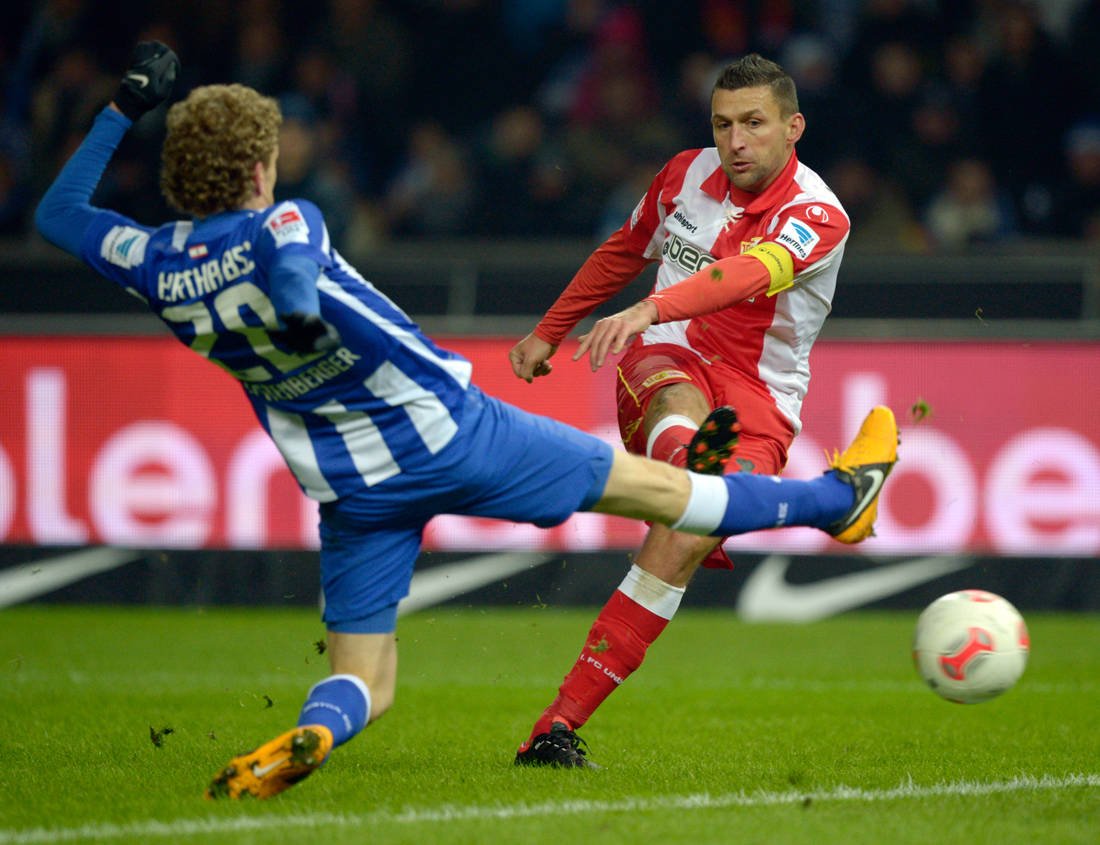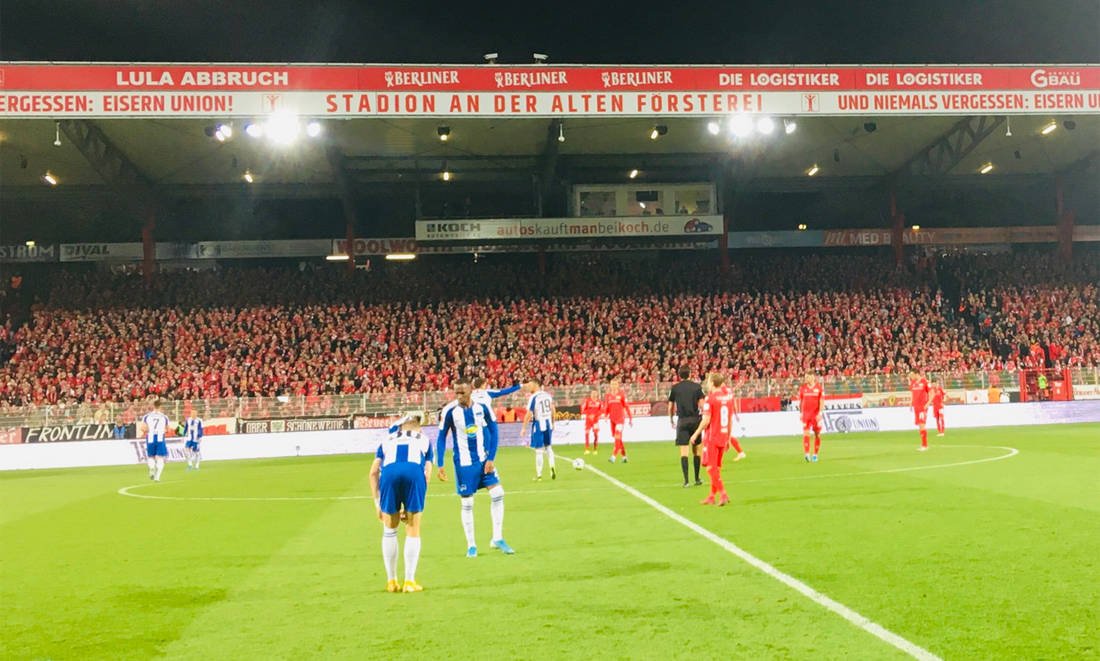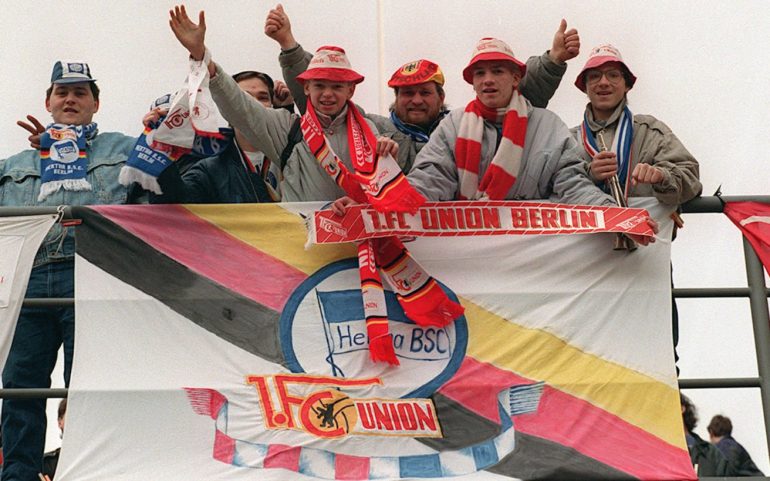The Berlin Wall For over 28 years it was the natural border between East and West Berlin, being essentially a man-made structure that actually separated two different worlds. The "Wall of Shame", as it was called, laid not just an imaginary line, but an existing border between capitalist West Germany and socialist East Germany, but also between countries under US, UK and other control. France and the other side which belonged to the sphere of influence of the Soviet Union.
The complex military structure, which contained two 3,6-meter-high walls with a patrol corridor, 302 observatories and alarm systems, 14.000 guards, 600 dogs and barbed wire, was the barrier between two football planets, all known to unite. they would become one at some point, but almost no one could be sure when that would happen. When the impenetrable wall proved to be perforated, thanks to the desire of the peoples (regardless of how its fall is judged historically), then the Bundesliga began to take the form we know today.
After three decades, the crew of the year arrived and on Saturday, November 2, the two great powers of the German capital: Hertha and Union, met at the level of the First National Division, with the second home team. And despite the fact that Berlin θεω is not considered a football fan in a country that has conquered everything both nationally and collectively, it caught the eyes of the fans - for right and wrong reasons.
The 26 kilometers came closer than ever
Hertha Berlin's Olympic Stadium and Union's Alten Fersterray are about 26 miles [XNUMX km] apart. A distance that used to seem huge, is now much shorter. After many years the Wall was not an obstacle, but the financial situation of the clubs from East Germany was.
The differences that existed in social and economic level between the west and east side of the city, brought pressure on those clubs that belonged to the second. When the league became unified, Hertha played at once in Bundesliga, but the Union was two categories below.
By and large, the Union managed in 2001 to be promoted to the Second National Division, the well-known for football fans Zwaiteliga. In fact, that season he became the first team from the third ranked category of the country to secure a European ticket, as he managed to reach the Cup final. Schalke at that time proved to be very hard on the "teeth" of the great underdog, with the final 2-0 in favor of Gelsenkirchen's team being formed by the goals of an East German, Yog Beme.

Despite the fact that "Siderenia", as it is the nickname of the team, began to enter the football map and become known outside the country, the following years in Tsvaite were not easy. Within a short time, she was relegated to Division D and was in danger of falling even lower, as she could not find the money to secure her participation in the championship. It was there that the fans took matters into their own hands. They themselves literally decided to curse for their team and managed not only to save it, but also to bring it new life. Taking advantage of the fact that in Germany blood donors are paid, they donated their blood, raised money and began to become… shareholders of the association. At the same time, with their own "backs", the stadium changed shape, which they essentially reconstructed and made more modern.
In 2009 she was promoted again to Division B and after ten years Union managed to do what seemed to be overtaken. In the double promotion-relegation games with Stuttgart, last May, with the away 2-2 and the home "white" draw (0-0) became the first team from East Berlin to secure its presence in the… lounges of football.
A love affair during the separation period
The Berlin Union became the fifth team in the German capital last spring - and typically in the summer - with participation in the Bundesliga. The other four are Tasmania 1900, Blau-Weiss, Tennis Borussia and of course Hertha, which has 36 seasons in the country's top division.
In the past, only four of his derbies have been held Berlin at A 'category level, all in the 70's, with Hertha and Tennis Borussia as common denominators. However, never between teams on both sides of the capital. Something that remained until November 2 of this year. And despite the good background that existed between the two clubs, it turned out to be episodic and confirmed the fears of the Authorities that something could "go wrong". After all, the fans of the two teams were the first to deviate, as over time they ruined an extremely friendly relationship.

Hertha was never the "giant" of German football. It is indicative that its two championship titles came in 1930 and 1931. However, it has always had a large number of supporters in and around Berlin. The Union was in about the same fate, as East Germany was dominated by teams such as Forverts and Dinamo Berlin, with the latter having the support of the Police, ie (and) the Stasi. However, a large number of fans were passionate about "Siderenia", because it always produced something reactionary. Her people were generally not in favor of the regime, however, respecting its class origin (most of its followers are workers), even with the fall of Wall did not go to the far right, unlike what happened to other traditional East German football powers, such as Hansa Rostock and Dynamo Dresden.
Friends of Hertha crossed to the other side of Berlin and watched Union matches, while those of the "Iron" stood by the "Old Lady" of German football in matches in Eastern Europe. A typical game was that of the 1978-79 season for the UEFA Cup, when on March 21, 1979 it became one of the biggest fan movements in the history of football. Of the approximately 20.000 people the Hertha players played in the away game against Dukla Prague, it is estimated that more than half were Union fans.
The solidarity between the supporters of the two groups continued with his fall Wall, which started on November 9, 1989. Two days after this historic event, Hertha played an important match for its promotion to the First Division. Unusually large crowds gathered there, with a large percentage of over 50% being once again of the Union.
The first match between the two teams (the Union was founded in 1966), was a friendly to celebrate the reunification of the city, on January 27, 1990. The Berlin Olympic Stadium was filled with over 50.000 people, fans of both teams saw the match hug (basic photo of the article) and the blues of the west mixed with the reds of the east.
Reunification brought new gap and tension
The match of November 2, 2019, however, was not the first official in the history of the two clubs. Union and Hertha met four times, twice, in the 2010-11 and 2012-13 seasons), when the blue side of the city knew… dark moments with its relegation to Zweite.
Love and mutual respect did not last forever. At this stage the fan relationships can not be described simply as cold. On the contrary, one could easily call them explosive. The first match of the two teams in level Bundesliga, in "Alten Fersterray", proved to be the most episodic of all. The fears of the Police were confirmed, with the intensity hitting… red.
Although the past of the two clubs did not show that something out of schedule could be done, this game just a celebration of football did not turn out. Initially, at the start of the replay and the scoreboard read 0-0, Union fans started throwing smoke on the pitch, causing the referee to pause for a few minutes.
Then, hooligans of the home team with their faces covered, invaded the field, wanting to reach the place where the Hertha fans are hosted. The players of their own team realized this and not only asked them to leave, but they also put their hands up to push them away.
Now, on a football level, the Berlin has been separated again. All indications are that this will hardly change drastically and immediately, with one of the greatest loves at the fan level turning into hatred, which is currently at its highest level. As for the story, the first Berlin derby for the Bundesliga went to the Union (1-0), which was imposed on Hertha with a penalty in the 90th minute…
